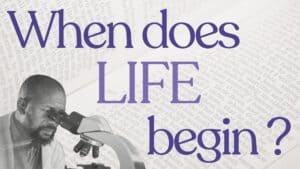Benjamin Watson was at work that evening when the nation’s wounds were reopened.
It was a Monday night, Nov. 24, 2014, and Benjamin was on national television playing tight end for the New Orleans Saints. The team fell to the Baltimore Ravens that night, their third loss in a row, and — disappointed by the defeat and the season in general — Benjamin just wanted to get out of the locker room and head home. He didn’t know what was happening in Ferguson, Missouri.
His wife, Kirsten, told him the news: A St. Louis County grand jury had decided not to indict the police officer who shot Michael Brown in August. Benjamin stayed up for hours watching the fallout. While some believed the officer was justified, other Americans across the country took to the streets to express their shock, their disappointment, their rage.
He spent the next day typing a lengthy Facebook entry that unraveled the maelstrom of his mixed emotions: uncertainty about exactly what happened; embarrassment over violence and looting; sadness that our racial divide had widened; and fear that, even as a law-abiding citizen, he is perceived as a threat because of his skin color.
Yet Benjamin wrote that he remained hopeful and encouraged because, as bad as things seemed, they were still better than they once were; and because racial tension was not a skin problem, but a sin problem:
Sin is the reason we rebel against authority. Sin is the reason we abuse our authority. Sin is the reason we are racist, prejudiced and lie to cover for our own. Sin is the reason we riot, loot and burn. But I’m encouraged because God has provided a solution for sin through His Son, Jesus, and with it, a transformed heart and mind. The cure … is not education or exposure. It’s the Gospel. So, finally, I’m encouraged because the Gospel gives mankind hope.
Benjamin says he hesitated to mention his hope in God, but only for a moment. He didn’t know how many people would care what he had to say, much less how they would react. He had no idea.
Starting a family
He comes from a family of athletes. Dad played football at the University of Maryland; Mom was a synchronized swimmer. Benjamin was the first of their six children. His father was a minister and a speaker for the Fellowship of Christian Athletes (FCA), so summer vacations consisted of piling the family into a car and trekking to FCA campsites from Indiana to South Carolina. Benjamin remembers watching the older campers.
“From a young age that really shaped me,” he says. “Seeing athletes who were really good at what they did and loved their sport, but also loved the Lord.”
In high school, Benjamin excelled at football and track, and he eventually earned all-SEC honors playing tight end at the University of Georgia. That’s where he met Kirsten, at — where else? — an FCA meeting.
Benjamin had a feeling that Kirsten could be more than just another girlfriend.
“I thought she would be a great mom. She came from a good family, and she was also very, very smart,” he says. “She loved the Lord, she was willing to give of herself, and she cared about other people.”
They prayed about starting a relationship, Kirsten says, and, after talking to their parents, they made it official.
The New England Patriots selected Benjamin in the first round of the 2004 draft, and he married Kirsten after his rookie season. He got a Super Bowl ring that year and ended up spending six years with the team.
Kirsten gave birth to their first child, Grace, in 2009. The family moved to Cleveland in 2010 when Benjamin signed with the Browns. Their second daughter, Naomi, arrived the next year, followed by sons Isaiah and Judah, and their youngest daughter, Eden.
The Watsons packed up again in 2013, when Benjamin signed with the Saints. He already had a reputation for promoting faith and family and for helping the underserved in his community, but in New Orleans his platform was about to get a whole lot bigger.
Racial reconciliation
Benjamin’s Facebook post about racial reconciliation eventually climbed to more than 850,000 likes and nearly a half-million shares. Thousands thanked him for putting into words what they’d struggled to express on their own.
Benjamin quickly expanded his Facebook message into a book, Under Our Skin: Getting real about race. A man largely unknown outside of football circles now appeared on CNN, Fox News and Christian radio.
Given the opportunity, Benjamin broadened his public platform beyond racism, taking on issues such as sex trafficking and the sanctity of human life. He spoke passionately at the January 2017 March for Life rally in Washington, D.C., challenging men to stand up for the preborn and their mothers in crisis.
Benjamin attributes some of these new opportunities to timing and maturity. “I think with getting older, having kids, I really don’t care what people say,” he says. “I just want to say the truth, you know? I don’t speak about certain things because I’m an athlete. I speak because I believe that’s what God would have me do.”
He also credits his wife’s encouragement for his increased outspokenness.
“I go back to Kirsten for why I’m that person,” he says. “I would probably just stay in my room and not talk to anybody, but she’s like, ‘No, you have an opportunity. Do what the Lord leads.’ ”
The gift of an ultrasound
Kirsten and Benjamin recognized another opportunity during a presentation about Focus on the Family’s Option Ultrasound Program, which helps educate expectant moms about the life inside them by placing ultrasound machines in pro-life pregnancy centers.
The Watsons needed only one look at each other. This is it, they agreed. We’ve got to do this.
“It’s always been on my heart to work with girls and women who are in crisis,” Kirsten says. “This particular issue, with ultrasound, just spoke to me and Benjamin — that we could help people to see, in whatever situation they’re in, that it’s life. We want everyone to have an opportunity to experience that, especially when they’re considering not continuing with a pregnancy.”
The Watsons offered to pay for a 3D ultrasound machine. As it turns out, the Pregnancy Clinic in Severna Park, Maryland, was in need of a new one. And as it also turns out, the very same building once housed an abortion clinic. The Pregnancy Clinic renovated all of the rooms except one. The late-term abortion room remains exactly how it was found, save for walls now covered in Scripture and a small carpet to cover the blood stains. Today it is a room of prayer.
Pregnancy Clinic CEO Pamela Palumbo says she had no idea who the Watsons were when Focus informed her that a donor had made a large gift and would like to tour the Severna Park location.
Inside the late-term abortion room, Kirsten and Benjamin wrote verses on the walls and prayed. Kirsten knelt and Benjamin wept. Not a word was spoken.
“We [later] had a time of prayer over the 3D ultrasound and all that God would do through it,” Pamela says. “They both prayed so powerfully, I think everyone in the room was in tears.”
Following the tour, the Watsons met with two clients and their families, who shared just how much the ultrasound influenced their decision to choose life for their babies.
“We did the 3D ultrasound with all of our kids,” Kirsten says. “It’s pretty exciting to see, so when one of the moms said she was able to see the baby in 3D and she kind of teared up, I knew exactly how she felt.”
Hope for the future
In 2017, Benjamin had a pretty good season for a 36-year-old, catching 61 passes for more than 500 yards. In a league where the average career lasts barely three seasons, Benjamin knows he’s had a great run. In March 2018, he signed a one-year contract with the Saints to play his 14th season.
Will this season be his last? He’s not ready to say, at least not yet.
“I’ve been prepared for the last several years for it to be my last year,” he says.
While Benjamin ponders that decision, the Watsons are already looking forward to sponsoring another ultrasound machine.
“Hopefully we’ll be able to do one in New Orleans.”















